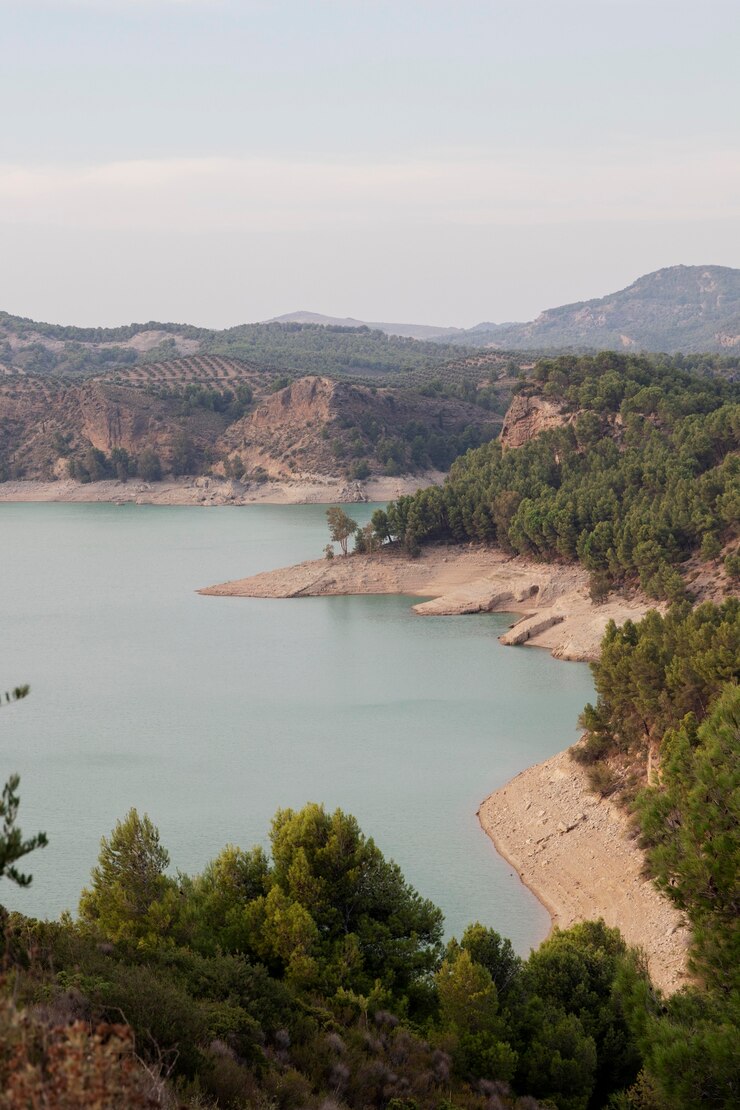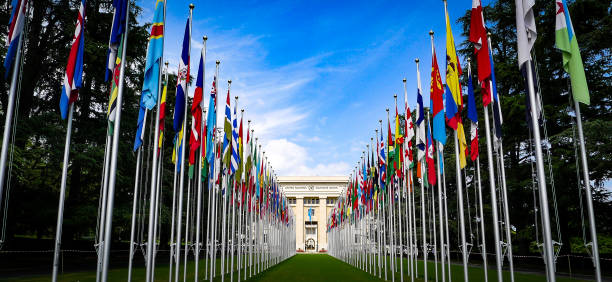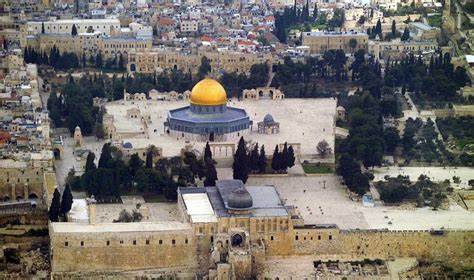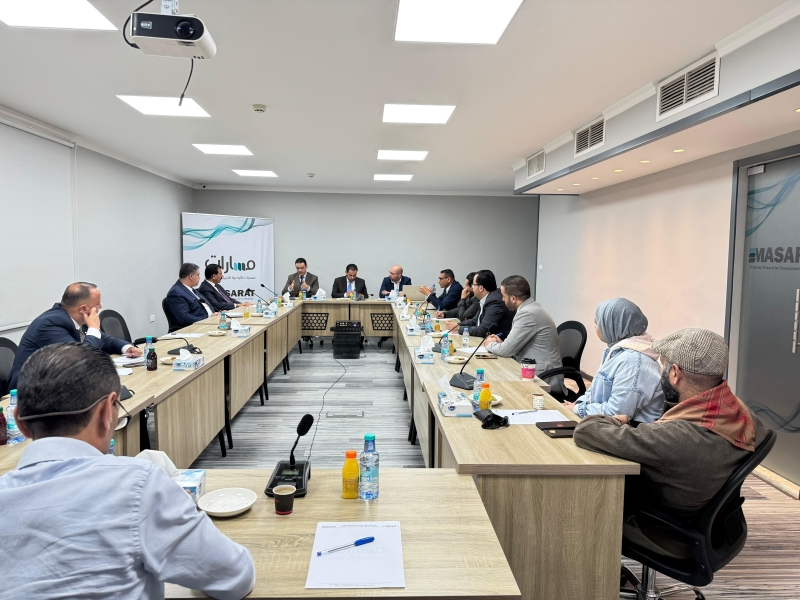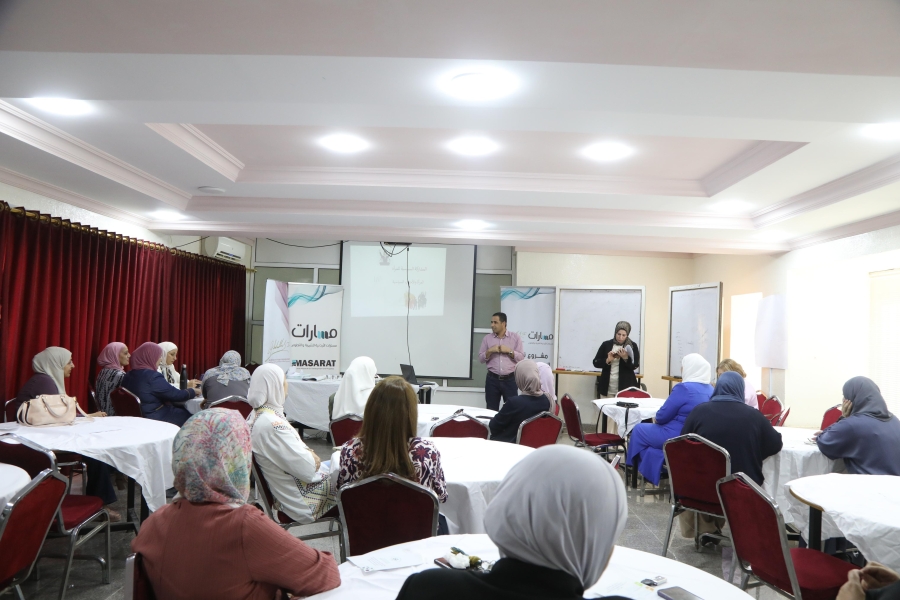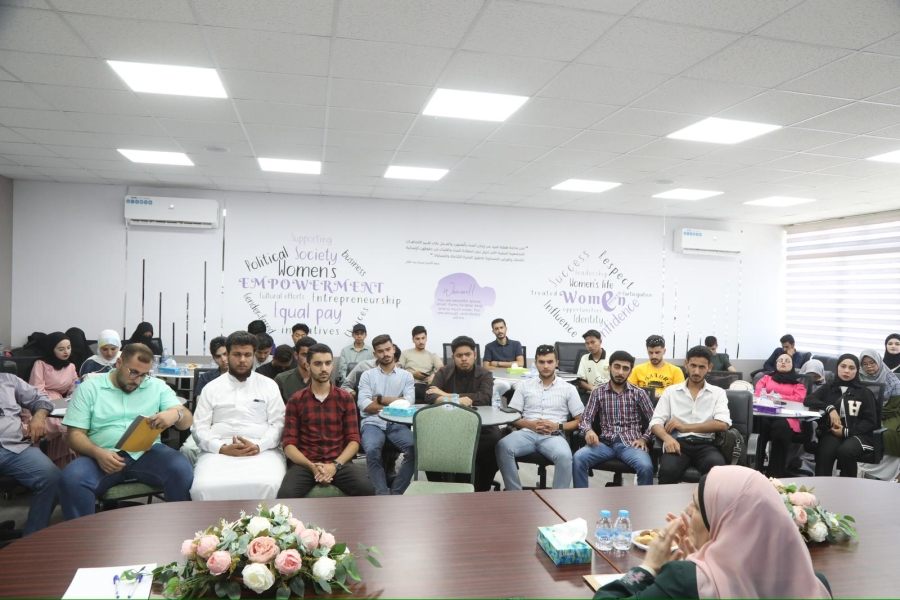Al-Dustour newspaper: Jordanian Masarat organizes a training workshop on encouraging women to engage in party activity in Al-Balqa Applied School
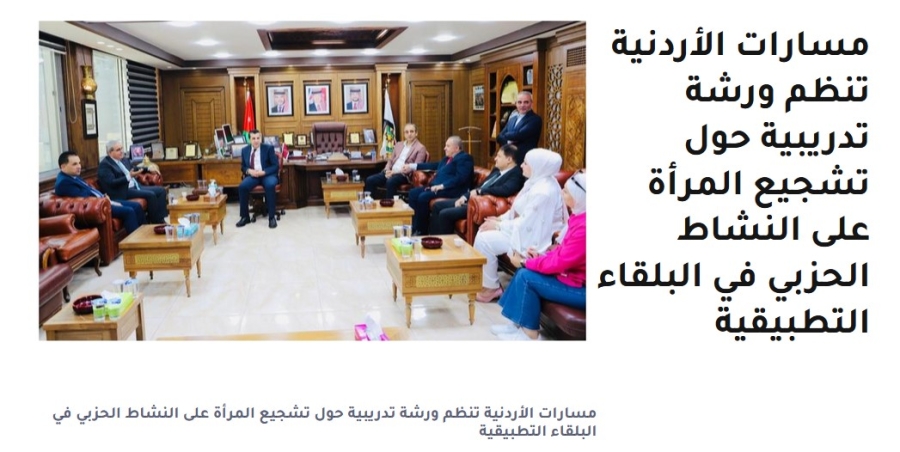
Senator Al-Bdour: National parties help build national consensus through dialogue and negotiation between various political and social forces.
Dr. Al-Ajlouni: Al-Balqa Applied University is committed to providing all necessary support for youth and women to participate in political and partisan life, in line with the national vision to achieve comprehensive and sustainable development.
Ghoneimat: Voter turnout in the upcoming parliamentary elections will play a decisive and pivotal role in forming a strong parliament capable of addressing challenges.
Salt - Al-Dustour - Ibtisam Al-Atiyat
As part of the cooperation programs implemented by Al-Balqa Applied University with various official and civil institutions across multiple areas of local interest, the university, through the Career Development Center, organized a workshop in cooperation with Masarat Foundation for Development and Friedrich Naumann Foundation for Freedom. This workshop, titled "Encouraging Women's Partisan Activity," is part of the "Training Academic Women on Partisan Work in Universities" project implemented by Masarat in partnership with the King Abdullah II Fund for Development.
The university president, Professor Dr. Ahmed Fakhri Al-Ajlouni, welcomed Senator Dr. Ibrahim Al-Bdour, the Executive Director of Masarat, Talal Ghoneimat, and member of the Jordanian Journalists' Syndicate, Khaled Al-Qudah, in his office. The meeting was attended by Vice President for Colleges Affairs, Professor Dr. Zakaria Al-Qudah, Dean of Student Affairs, Professor Dr. Khaled Al-Zoubi, and Director of the Career Development Center, Dr. Khalaf Khataitneh.
Dr. Al-Ajlouni welcomed the participants in the workshop, emphasizing that Al-Balqa Applied University continuously strives to implement the royal visions of advancing higher and technical education, as well as the royal directives to develop political and partisan life. He highlighted that universities are incubators for conscious and educated youth and serve as catalysts for societal progress and exemplars of academic and public engagement in the community. For this reason, the university's administration, through the Deanship of Student Affairs, has directed all colleges to encourage students to engage in political work and join national parties.
The university has hosted numerous national and partisan leaders and members of the Royal Committee to Modernize the Political System to speak with students and encourage their political participation. This aims to build a stronger Jordan envisioned by His Majesty King Abdullah II, with an educated and conscious youth as its foundation. His Majesty has emphasized developing parties with clear programs and broad popular bases nationwide, encouraging adherence to the constitution and laws.
Dr. Al-Ajlouni reiterated the university's commitment to providing all necessary support for youth and women to participate in political and partisan life in line with the national vision to achieve comprehensive and sustainable development.
During the workshop, the Dean of Student Affairs, Professor Dr. Khaled Al-Zoubi, stressed the national responsibility of participating in the upcoming parliamentary elections by actively voting and choosing candidates based on viable national programs while avoiding considerations that do not prioritize the country's interests.
Dr. Al-Zoubi thanked Senator Al-Bdour, Ghoneimat, and Al-Qudah, praising their efforts to strengthen ties between the university and the community. He also expressed his anticipation for more future events that will enhance political awareness regarding political parties and empower women.
Senator Al-Bdour commended Al-Balqa Applied University's efforts in organizing lectures, seminars, workshops, and meetings that foster collaboration and the exchange of ideas between educational institutions. This reflects the dedication and professionalism that characterize Al-Balqa Applied University in its various activities.
Dr. Al-Bdour emphasized that political parties strengthen the democratic process through participation in upcoming parliamentary elections and shaping public policies adopted by governments, whether through voting, engaging in partisan activities, or running for office.
He added that parties help build national consensus through dialogue and negotiation between various political and social forces, thereby promoting national unity and political stability. This is a result of the strong cohesion between Jordan’s system and its people, alongside the paternalistic approach of the state led by the Hashemite leadership to build a better political future for Jordan. Political parties can play a significant role in fulfilling the aspirations of Jordan’s leadership and people.
Ghoneimat highlighted that voter turnout in the upcoming parliamentary elections will play a decisive and pivotal role in forming a strong parliament capable of addressing Jordan’s challenges. He noted that despite public dissatisfaction with the performance of some previous parliaments, Jordan is now experiencing a new political reform project for the first time since its founding. This project ensures enhanced participation of women and youth in political, partisan, and electoral life, whether through candidacy or placement in closed general lists.
He added that political engagement is crucial for Jordanian youth, as the reform project incentivizes their participation in political and partisan life. Youth are the foundation of the project’s success, and its success will support political activity for youth in the coming years.
The two-day training workshop included programs for female students on partisan work at the university, implemented by journalist Khaled Al-Qudah. Topics covered included democratic and political participation for women, the concept of partisan structures and their elements, the historical background of Jordanian women’s political and partisan participation, political modernization in Jordan, the new electoral law and the electoral system for 2022, and the amended parties law of 2022.

